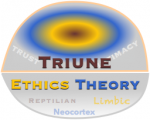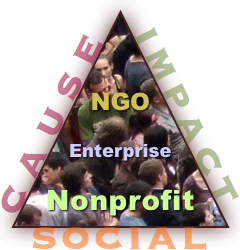
Africa [credit: Mapswire.com]
Africa is a nascent innovation powerhouse, and its leadership will become increasingly obvious during the coming decades, but the seeds are already visible as this post reveals: Africa’s population is exploding, and its young people are adopting tech alternatives to countries’ long-insufficient health, education, and financial infrastructure.
If you’ve been interested in international development for long, you have seen many prognostications about “Africa rising” over the years only to see them fade into oblivion. Predicting profound economic shifts is like predicting earthquakes; you study the driving forces and your algorithms crunch the data.
That isn’t stopping Helga Stegmann. She has led “user experience” agency Mantaray since 2006, and she gave a riveting talk last week in Chicago hosted by partner agency BoldInsight. In my experience, user experience folks rarely have their hands on the pulse of disruptive economic change, but the reason she is an exception reflects that Africa’s economic transformation is happening at the grassroots level (as with most revolutions), and her key orientation is user experience design, so researching users across rapidly evolving interfaces in devices. Follow along with my notes of her remarks […]

Trust and the Triune Ethics Theory reviews Darcia Narvaez’s breakthrough Triune Ethics Theory paper and draws new insights into how trust and relationship building work, based on the human brain’s evolutionary development, structure, and functions. And it sheds light on how experiential social media increases intimacy.
Triune Ethics Theory, Darcia Narvaez, Ph.D.
 Triune Ethics is an enthralling, exceedingly useful approach to understanding human behavior because it explains the context of trust and relationship building at a profound level that is actionable for anyone who wants deeper, richer, more flexible connections and collaboration with people. Triune Ethics Theory will help me to educate my clients and teams at a deep level, and it can give you a rare understanding of your own behavior—and that of people around you. Triune Ethics is an enthralling, exceedingly useful approach to understanding human behavior because it explains the context of trust and relationship building at a profound level that is actionable for anyone who wants deeper, richer, more flexible connections and collaboration with people. Triune Ethics Theory will help me to educate my clients and teams at a deep level, and it can give you a rare understanding of your own behavior—and that of people around you.
As with all my reviews, I will attempt to summarize this paper’s salient points before adding some reflections and conclusions about how I’m using its assertions in my work. As I have no formal training in neuroscience, I am drawing on lay study as well as psychology and my […]
 Nonprofits and experiential social media shares how nonprofits can improve their social media results and why I think experiential social media has an affinity for cause-focused organizations. This post was triggered by my insights from my recent research on nonprofits and cause-focused organizations. Although I’d served nonprofits throughout my consulting career, my focus was on commercial firms. While organizing Chicago Social Empowerment [Cohort One], I researched many nonprofits to distill the cohort’s categories, so I learned more about nonprofit operations and business models. Nonprofits and experiential social media shares how nonprofits can improve their social media results and why I think experiential social media has an affinity for cause-focused organizations. This post was triggered by my insights from my recent research on nonprofits and cause-focused organizations. Although I’d served nonprofits throughout my consulting career, my focus was on commercial firms. While organizing Chicago Social Empowerment [Cohort One], I researched many nonprofits to distill the cohort’s categories, so I learned more about nonprofit operations and business models.
First, I’ll share some broad insights about nonprofit operations and business models, specifically focusing on their stakeholders, and broad guidance for improving their results with social media. Then I’ll share insights about experiential social media and why I hypothesize that it has a special affinity for nonprofits.
For brevity, I’ll also use “nonprofit” to refer to social enterprises and other cause-focused organizations.
[…]
 The Potential of Female Leadership explores what lessons we may learn from bonobos’ matriarchal social structure, so we can build stronger, more collaborative human communities and groups. Bonobo Handshake is an enthralling insightful book, which I review here. A tremendous bonus is its similarities to and significant differences from Chimpanzee Politics (reviewed yesterday). The Potential of Female Leadership explores what lessons we may learn from bonobos’ matriarchal social structure, so we can build stronger, more collaborative human communities and groups. Bonobo Handshake is an enthralling insightful book, which I review here. A tremendous bonus is its similarities to and significant differences from Chimpanzee Politics (reviewed yesterday).
Bonobo Handshake was on the same library shelf as Chimpanzee Politics, but it is a very different book, and in delightful ways. At the same time, it offers intriguing insight into bonobos’ behavior, which differs significantly from chimpanzees’ and holds interesting lessons for human societies and groups. Although Woods is not a primatologist per se, she has conducted extensive research with her husband, who is, so explaining scientific experiments forms a key part of this book.
Bonobo Handshake is rare in a surprising way. Deftly and subtly, it contrasts the joy, harmony and matriarchal structure of the bonobos with chimpanzees’ and humans’ patriarchal societies and violence: the wars in and around the two Congos result in the […]
 Unique, Insightful and Useful Guide to Business and Civil Politics reveals human political strategies through the eyes of a primatologist studying a chimpanzee community. It lays bare most of the behavior people use “to get ahead” in business and politics by explaining the evolutionary underpinnings of these behaviors, so we can appreciate them at a new level. Unique, Insightful and Useful Guide to Business and Civil Politics reveals human political strategies through the eyes of a primatologist studying a chimpanzee community. It lays bare most of the behavior people use “to get ahead” in business and politics by explaining the evolutionary underpinnings of these behaviors, so we can appreciate them at a new level.
Have you ever heard someone say, “I’m not political!”? S/He may mean well, but this book shows that one cannot be human without being “political”; moreover, it explains political behavior in hilarious, poignant ways that help the reader in multiple ways as I detail here. It is immensely entertaining to read while being scientific in its assertions.
[…]
 Three Powerful Experiential Social Media Lessons shares three surprising breakthrough insights I’ve learned while practicing experiential social media. This is one of the videos I’ve made to share some of the most useful things I’ve learned since 2006. Three Powerful Experiential Social Media Lessons shares three surprising breakthrough insights I’ve learned while practicing experiential social media. This is one of the videos I’ve made to share some of the most useful things I’ve learned since 2006.
If you’d like to watch this post instead of reading it, click the thumbnail button!
[…]
 How to Protect Yourself from Pervasive Surveillance and Control shows how you can act to protect yourself, your family and your community from the rise of digitally enabled surveillance and control. How to Protect Yourself from Pervasive Surveillance and Control shows how you can act to protect yourself, your family and your community from the rise of digitally enabled surveillance and control.
Privacy and Autonomy in the Digital Age is a series I’m writing to share my insights into disruptive risks that we face, individually and collectively, due to the digitization of the world. As I wrote in Part1, my technology adoption crystal ball says that the convergence of pervasive digital data, smart devices and their centralized [cloud] control enables unprecedented surveillance and control of people at a very low cost. This post offers various suggestions for mitigating the risks, while Police State Scenarios (Part3) discusses ways that collective permanent loss of autonomy could unfold.
[…]
 In Healing Business, I’ll share why I think business needs healing and how CSRA is doing it with experiential social media. Business is wounded from a human point of view because it’s become very impersonal; large organizations don’t mean to, but they treat employees and customers as numbers because they don’t know or trust them. Experiential is a practical way to change that. In Healing Business, I’ll share why I think business needs healing and how CSRA is doing it with experiential social media. Business is wounded from a human point of view because it’s become very impersonal; large organizations don’t mean to, but they treat employees and customers as numbers because they don’t know or trust them. Experiential is a practical way to change that.
If you’d like to watch this post instead of reading it, click the thumbnail button!
[…]
 11 Celebration summarizes my reflections on CSRA’s first decade in business, and my vision for our next decade. We’ve been pioneering in experiential social media and social business transformation since I founded the firm in February 2006. 11 Celebration summarizes my reflections on CSRA’s first decade in business, and my vision for our next decade. We’ve been pioneering in experiential social media and social business transformation since I founded the firm in February 2006.
It’s difficult to encapsulate ten years of learnings, but that hasn’t stopped me from trying! This page will reprise some of my favorite posts, and it will feature a series of videos I’ve made in which I explain where we’ve been and where we’re going. This post will change frequently, so please consider it a work in progress.
[…]
 On human experience invites you to examine common marketing practices from a human experience perspective. It expands part of a presentation I gave at the University of Chicago Booth that the audience experienced as mind-bending based on their facial expressions. On human experience invites you to examine common marketing practices from a human experience perspective. It expands part of a presentation I gave at the University of Chicago Booth that the audience experienced as mind-bending based on their facial expressions.
Quite by accident I’ve happened on a rare view of humanity while practicing experiential social media during the last ten years. Experiential’s core research process involves conducting ethnographic research of thousands of people in specific situations. I analyze human behavior in communities in digital public, and it’s very rich, nuanced and complex. Ethnographic yields unparalleled qualitative and quantitative insights into behavior and human experience.
Experiential consistently reveals that many marketing practices repel people rather than attracting them because the environment in which marketing is practiced has completely changed from when these practices developed. Marketing creates mistrust and pushes people away, as I’ll show below. This post attempts to reveal this anachronism to you, so you can correct your practices and take the advantage from your competitors.
[…]
|
|



 Triune Ethics is an enthralling, exceedingly useful approach to understanding human behavior because it explains the context of trust and relationship building at a profound level that is actionable for anyone who wants deeper, richer, more flexible connections and collaboration with people. Triune Ethics Theory will help me to educate my clients and teams at a deep level, and it can give you a rare understanding of your own behavior—and that of people around you.
Triune Ethics is an enthralling, exceedingly useful approach to understanding human behavior because it explains the context of trust and relationship building at a profound level that is actionable for anyone who wants deeper, richer, more flexible connections and collaboration with people. Triune Ethics Theory will help me to educate my clients and teams at a deep level, and it can give you a rare understanding of your own behavior—and that of people around you. Nonprofits and experiential social media shares how nonprofits can improve their social media results and why I think experiential social media has an affinity for cause-focused organizations. This post was triggered by my insights from my recent research on nonprofits and cause-focused organizations. Although I’d served nonprofits throughout my consulting career, my focus was on commercial firms. While organizing Chicago Social Empowerment [Cohort One], I researched many nonprofits to distill the cohort’s categories, so I learned more about nonprofit operations and business models.
Nonprofits and experiential social media shares how nonprofits can improve their social media results and why I think experiential social media has an affinity for cause-focused organizations. This post was triggered by my insights from my recent research on nonprofits and cause-focused organizations. Although I’d served nonprofits throughout my consulting career, my focus was on commercial firms. While organizing Chicago Social Empowerment [Cohort One], I researched many nonprofits to distill the cohort’s categories, so I learned more about nonprofit operations and business models. The Potential of Female Leadership explores what lessons we may learn from bonobos’ matriarchal social structure, so we can build stronger, more collaborative human communities and groups. Bonobo Handshake is an enthralling insightful book, which I review here. A tremendous bonus is its similarities to and significant differences from Chimpanzee Politics (reviewed yesterday).
The Potential of Female Leadership explores what lessons we may learn from bonobos’ matriarchal social structure, so we can build stronger, more collaborative human communities and groups. Bonobo Handshake is an enthralling insightful book, which I review here. A tremendous bonus is its similarities to and significant differences from Chimpanzee Politics (reviewed yesterday). Unique, Insightful and Useful Guide to Business and Civil Politics reveals human political strategies through the eyes of a primatologist studying a chimpanzee community. It lays bare most of the behavior people use “to get ahead” in business and politics by explaining the evolutionary underpinnings of these behaviors, so we can appreciate them at a new level.
Unique, Insightful and Useful Guide to Business and Civil Politics reveals human political strategies through the eyes of a primatologist studying a chimpanzee community. It lays bare most of the behavior people use “to get ahead” in business and politics by explaining the evolutionary underpinnings of these behaviors, so we can appreciate them at a new level. Three Powerful Experiential Social Media Lessons shares three surprising breakthrough insights I’ve learned while practicing experiential social media. This is one of the videos I’ve made to share some of the most useful things I’ve learned since 2006.
Three Powerful Experiential Social Media Lessons shares three surprising breakthrough insights I’ve learned while practicing experiential social media. This is one of the videos I’ve made to share some of the most useful things I’ve learned since 2006. How to Protect Yourself from Pervasive Surveillance and Control shows how you can act to protect yourself, your family and your community from the rise of digitally enabled surveillance and control.
How to Protect Yourself from Pervasive Surveillance and Control shows how you can act to protect yourself, your family and your community from the rise of digitally enabled surveillance and control. In Healing Business, I’ll share why I think business needs healing and how CSRA is doing it with experiential social media. Business is wounded from a human point of view because it’s become very impersonal; large organizations don’t mean to, but they treat employees and customers as numbers because they don’t know or trust them. Experiential is a practical way to change that.
In Healing Business, I’ll share why I think business needs healing and how CSRA is doing it with experiential social media. Business is wounded from a human point of view because it’s become very impersonal; large organizations don’t mean to, but they treat employees and customers as numbers because they don’t know or trust them. Experiential is a practical way to change that. 11 Celebration summarizes my reflections on CSRA’s first decade in business, and my vision for our next decade. We’ve been pioneering in experiential social media and social business transformation since I founded the firm in February 2006.
11 Celebration summarizes my reflections on CSRA’s first decade in business, and my vision for our next decade. We’ve been pioneering in experiential social media and social business transformation since I founded the firm in February 2006. On human experience invites you to examine common marketing practices from a human experience perspective. It expands part of a presentation I gave at the University of Chicago Booth that the audience experienced as mind-bending based on their facial expressions.
On human experience invites you to examine common marketing practices from a human experience perspective. It expands part of a presentation I gave at the University of Chicago Booth that the audience experienced as mind-bending based on their facial expressions.